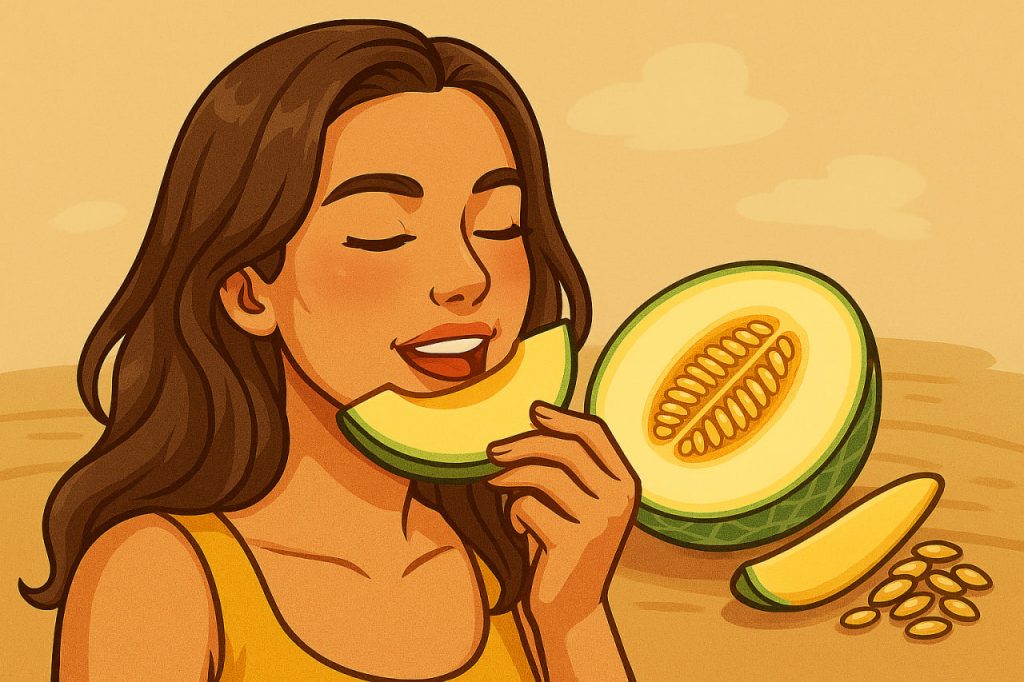Melon is one of the most refreshing and hydrating fruits enjoyed in summer. Known for its sweet, juicy flesh and pleasing aroma, the melon—especially varieties like cantaloupe and honeydew—is not just a tasty treat but also a nutrient-rich food. Surprisingly, even the seeds, often thrown away, hold nutritional and health potential.
Nutritional Value of Melon Flesh
Melons are composed of over 90% water, making them excellent for hydration. They’re also low in calories and high in:
- Vitamin C – boosts the immune system and promotes skin health.
- Vitamin A (from beta-carotene) – important for vision and skin.
- Potassium – helps regulate blood pressure.
- Folate – supports cell division and healthy pregnancy.
Because of their high water and fiber content, melons can aid in digestion and help you feel full longer.
Varieties of Melons
- Cantaloupe – Orange-fleshed with a netted skin, rich in beta-carotene.
- Honeydew – Pale green flesh with a smooth rind, slightly less sweet but very hydrating.
- Galia – A hybrid with golden skin and green flesh, aromatic and juicy.
- Watermelon – Technically a type of melon, known for its bright red, watery pulp.
Each variety offers different flavors and nutrient balances but shares the common benefit of being low-calorie and refreshing.
Melon Seeds: Don’t Throw Them Away
Melon seeds are often discarded, but they are rich in nutrients and can be consumed in several ways—roasted, dried, or ground into powder.
Nutritional highlights:
- Protein – Helps build and repair tissues.
- Healthy fats – Including omega-6 fatty acids.
- Zinc and magnesium – Essential for metabolic and immune functions.
- Fiber – Good for digestion and cholesterol control.
In some cultures, melon seed tea or oil is used as a traditional remedy for inflammation and digestive problems.
How to Eat Melon Seeds
- Roast them with a bit of salt or spices for a crunchy snack.
- Dry and grind them into smoothies or baked goods for added nutrition.
- Use them in trail mixes or as salad toppings.
Always clean and dry the seeds properly before consuming them to avoid mold or spoilage.
Storage Tips and Caution
- Keep melons refrigerated after cutting.
- Eat within 3–5 days to maintain freshness.
- People with nut allergies should be cautious when trying melon seeds, as cross-reactions are rare but possible.
Glossary
- Beta-carotene – A pigment that the body converts into vitamin A.
- Hydration – The process of absorbing and retaining water.
- Omega-6 fatty acids – A type of healthy fat important for brain and cell function.
- Folate – A B-vitamin essential for DNA synthesis and cell growth.
- Digestion – The process of breaking down food into nutrients.


